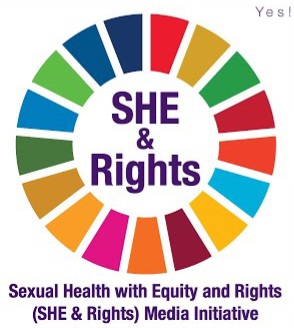
As the world marked International Safe Abortion Day on September 28, Nigerian youth advocates joined their counterparts across the globe to demand stronger investment in sexual and reproductive health and rights (SRHR), insisting that young people must no longer be left on the margins of health policy conversations.
In Nigeria, the push is being championed by voices such as Faith Ebere Onuh, Gender Equality Fund Ambassador and youth advocate with Y+ Global, who stressed that the future of SRHR in Africa’s most populous country depends on deliberate domestic financing and support for youth-led programmes.
“When we have invested in youth-led programmes, we see results because youth are not just the future but the present too,” she said, noting that a growing number of Nigerian young people are providing community-based solutions despite limited resources.
Across Nigeria, young people continue to face enormous challenges in accessing non-judgmental reproductive healthcare. From stigma in clinics to poor access to contraception and the criminalization of abortion, the barriers are layered with cultural, religious, and systemic constraints.
Healthcare workers, especially in rural areas, are often accused of being judgmental and dismissive, making it difficult for youths to seek timely and safe SRHR services. This gap, advocates warn, creates room for unsafe practices that can lead to life-threatening complications.
Global advocates like Debanjana Choudhuri, Executive Director of the Women’s Global Network for Reproductive Rights (WGNRR), argue that until young people are given space to participate meaningfully in decision-making, progress will remain slow.
“We need to create a system where there are opportunities for young people to participate in global, regional and local advocacy spaces and impact change towards SRHR and justice,” Choudhuri said.
Evidence shows that when youth are trusted with leadership, they deliver. From Nigeria to Kenya, Uganda to Nepal, young leaders are reimagining advocacy around health, sexuality, and rights.
Magdalena Nadya, a youth networker at the International Planned Parenthood Federation (IPPF), emphasized the need for youth-friendly clinics, mental health support, and comprehensive sexuality education (CSE). “Youth leadership is not in the future—it is already here. Young people should be trusted and supported,” she said.
In Kenya, Maryann Wambugu, Chair of The PACT and Y+ Kenya board member, noted visible progress in maternal health, contraception uptake, and reduction of female genital cutting. However, she cautioned that gains could be reversed without continuous investment in community-led interventions.
Monalisa Akintole, coordinator of the Uganda National Trans Forum, drew attention to the struggles of transgender youth in accessing healthcare. “Youth in all their diversities can no longer be a token within a system, they must be included meaningfully,” Akintole warned.
From Nepal, Nishant Kumar highlighted rising mental health concerns among young people, noting that suicide rates have increased to 18.1 per 100,000. He urged governments to integrate sexuality education into curricula while prioritizing youth mental health.
For Nigeria, the stakes are particularly high. With the country’s youth population exceeding 60 percent, the ability of government and stakeholders to provide safe spaces, quality healthcare, and progressive policies will determine whether global commitments under the Sustainable Development Goals (SDGs) can be achieved by 2030.
Advocates argue that beyond international support, the Nigerian government must prioritize domestic financing, eliminate harmful policies, and collaborate with youth networks to build trust.
“The voices are here, the energy is here, and the solutions are already being implemented at grassroots level by young people,” said Onuh. “What we need is for the system to recognize this and invest in it.”
As the debate continues, one thing is clear: Nigerian youth are not waiting to be included in the future of SRHR, they are already demanding their place at the table today.